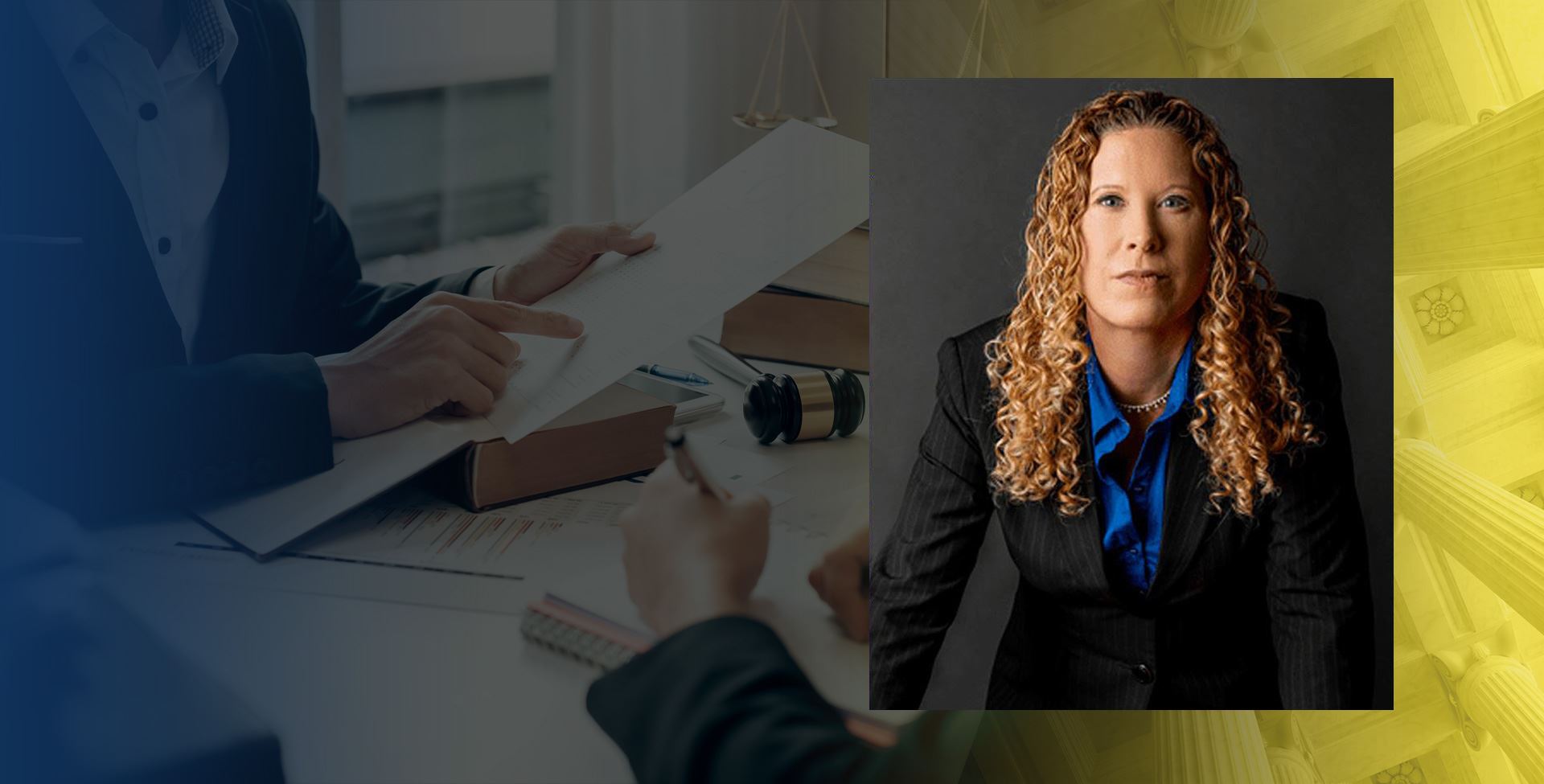
Lakeland Estate Planning Attorney
Over Two Decades of Legal Experience on Your Side
Estate planning is an essential part of managing your affairs and planning for the future. Whether you are in need of an estate planning attorney near me or an estate planning lawyer in Lakeland, ensuring your estate is managed effectively is crucial.
I am Melissa A. Wilson, founder of Advocate Law Firm, P.A., and I have helped clients, as an experienced estate planning attorney Bartow residents trust, secure financial peace of mind for over 20 years. I believe in providing high-caliber legal counsel to those who need it most, and I am dedicated to providing personalized case strategies to fit your needs.
Contact us online or call (863) 644-5566 for more information.
Understanding Probate in Florida
Probate is the legal process that takes place after a loved one dies. This process is complicated and can include appraisals, wills and trusts, inheritance, and more. Every state has its own regulations regarding probate, and Florida is no different.
Florida requires anyone with possession of a will to file it within ten days of the death of their loved one. The court will determine whether the will is valid during the probate process. Some assets do not need court approval as long as they are designated to a beneficiary or held in a living trust. Furthermore, property in joint tenancy does not require court oversight. Joint tenancy refers to property owned by more than one person, like a joint bank account or a house owned by a couple.
Formal probate proceedings in Florida start when the executor of the will asks the court to be appointed as a representative of the estate. These cases take place in the county where the deceased was living at the time of death. After the court receives the request, beneficiaries and family members are given notice.
The court will then issue Letters of Administration, which give the representative the power to settle the estate. Wills must always have the court's validation before they can be executed, unless they are self-proving, which means there were witnesses and a signed statement in front of a notary public.
At this point, the representative gathers assets, pays debts and taxes, and distributes property to the intended beneficiaries. After distribution is complete, the representative will file a receipt with the court, and the estate will be closed. The entire probate process can take six months to a year to complete. This time frame can vary significantly based on the complexity of the estate, the clarity of the will, and whether any disputes arise among beneficiaries. Engaging with a knowledgeable estate attorney in Bartow can help navigate these complexities and potentially expedite the process.
Probate is a tedious process that involves the court beneficiaries and a host of other parties to settle an estate. Never approach the probate process without the help of a skilled attorney.
Wills and Trusts: Key Components
Wills and trusts are a crucial part of the estate planning process. A will is a legal document that explains how you want your affairs to be settled and how your assets will be divided after death. For example, a grandparent passes away, but they have a notarized document that elects a personal representative to handle their affairs. This document also divides all remaining property after debts and taxes to the children and grandchildren. Wills can also include guardianship for minor children. This means that a grandparent, aunt, uncle, or godparent may have guardianship of minor children if the will explicitly designates them as a possible caretaker. Another critical difference between wills and trusts is that a will is available to the public.
Trusts are a fiduciary or monetary relationship with a trustor who gives a trustee the right to hold title to property or assets on behalf of another party. Sometimes trusts can provide benefits to a spouse or children or stipulate that an estate amount goes to charity. There are two main types of trusts: revocable vs. irrevocable.
Incorporating trusts into your estate plan can offer advantages such as privacy and control over asset distribution after your passing. Trusts can specify conditions under which beneficiaries inherit assets, providing a layer of protection and strategic financial planning for future generations.
- A revocable trust protects assets from probate and allows the grantor to retain control of these assets during their lifetime. Revocable or living trusts can be dissolved at any time. These trusts can also become irrevocable upon the grantor's death.
- An irrevocable trust includes assets outside the reach of estate taxes and probate that the grantor cannot change. This means that once an irrevocable trust is enacted, it cannot be changed even by the grantor.
Some people may use trusts to avoid probate and to keep their affairs private. Whether you intend to draft a will or set up a trust, always consult with an experienced estate planning lawyer near me.
Why You Need an Experienced Estate Planning Attorney
Estate planning is a complex area of law that requires knowledge and experience to navigate successfully. A skilled estate planning lawyer can help you protect your assets, minimize taxes, and ensure your wishes are carried out after your passing.
At Advocate Law Firm, P.A. in Lakeland, FL, our estate planning attorneys have over two decades of experience helping clients create comprehensive estate plans that provide for their loved ones and preserve their legacies. We understand the intricacies of Florida probate law and can guide you through the process from start to finish.
Understanding Estate Planning in Bartow
For residents of Bartow, staying informed about estate planning is crucial. In Florida, estate planning goes beyond simple wills and trusts. It encompasses several facets such as power of attorney, advance healthcare directives, and understanding homestead exemptions. Each component plays a pivotal role in ensuring that your assets are protected and your wishes are honored. By consulting an estate planning attorney Bartow residents trust, familiar with Florida law, you can develop a robust plan that addresses all potential scenarios, from incapacitation to estate taxes.
Florida is unique in offering considerable protections through homestead laws, critical for Bartow homeowners. The homestead exemption can shield a primary residence from forced sale to satisfy creditors under certain conditions, providing peace of mind about the security of your home. Effective estate planning can also provide structured asset management, reducing the emotional and financial burden on your beneficiaries. Whether setting up a living trust to manage distributions or establishing healthcare proxies to ensure your medical preferences are respected, each step is crucial for a comprehensive plan tailored to your needs.
Comprehensive Strategies for Bartow Residents
Residents in Bartow and surrounding areas can benefit greatly from a comprehensive estate planning strategy that considers local trends and legal nuances. A personalized approach ensures that unique family situations are considered, and potential judicial challenges can be efficiently addressed. At Advocate Law Firm, P.A., our approach incorporates all available tools, from setting up beneficiaries and managing digital assets to liaising with financial advisors for tax-efficient asset transfer.
In Bartow, trends such as digital asset management and cryptocurrency considerations are becoming increasingly relevant as more people integrate technology into their everyday lives. Including these aspects in estate planning ensures that digital legacies and online security are not neglected. Additionally, collaboration with local professionals, such as financial planners familiar with the area’s economic climate, enhances the effectiveness of your estate plan. This integrated approach guarantees that all aspects of your financial landscape are harmoniously aligned, mitigating risks and securing your legacy for future generations.

-
Personal Attention For Every Client
-
A Full Service Law Firm
-
More Than 20 Years of Experience
-
We Fight Tirelessly For Every Client
-
Virtual Consults Available



-
Common Questions
I understand that divorce law can be confusing and want to provide the resources you need to stay informed.
-
Meet Our AttorneysI, Melissa A. Wilson, don't back down from a challenge. I have the passion, experience, and drive that you need.
-
Collaborative Divorce
If you and your future ex-spouse hope to avoid traumatic court disagreements, collaborative divorce is for you.
-
Don't Do It Alone
Having an attorney in your corner throughout a divorce can help you reach an agreeable resolution faster and easier.
SEE WHY PEOPLE CHOOSE ADVOCATE LAW
At Advocate Law Firm, P.A., your satisfaction is our priority! See for yourself what our clients have to say about working with us.
-
"First Class Operation"First Class Operation- W.S.
-
"Excellent Staff"Excellent Staff- A.L.
-
"Nothing short of extraordinary!"Nothing short of extraordinary!- G.S.